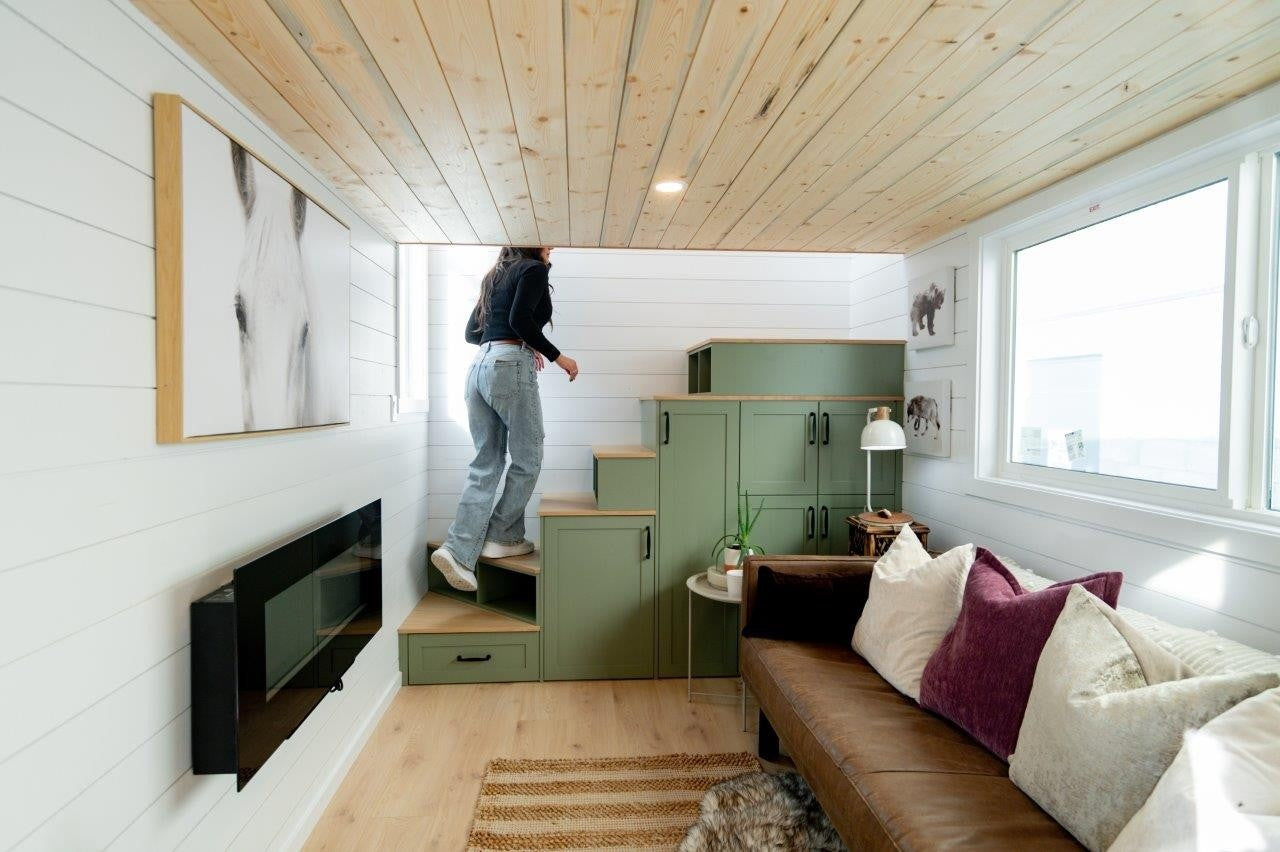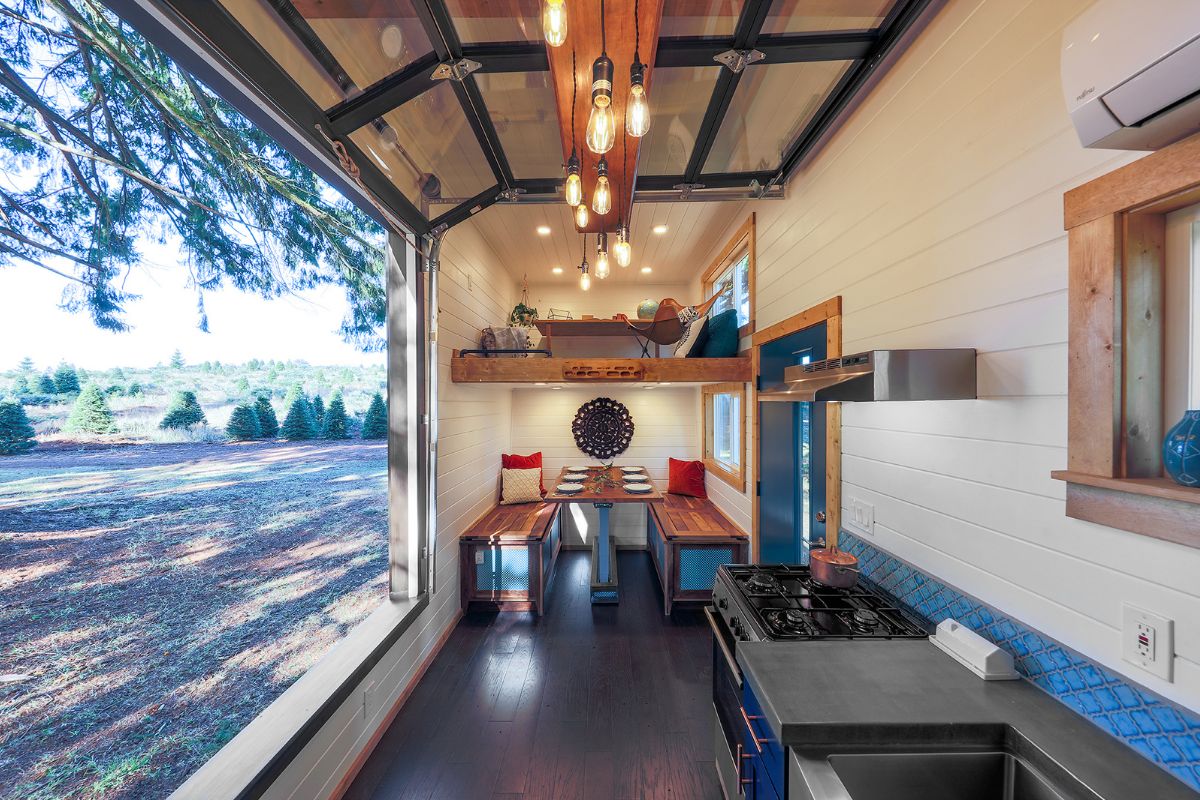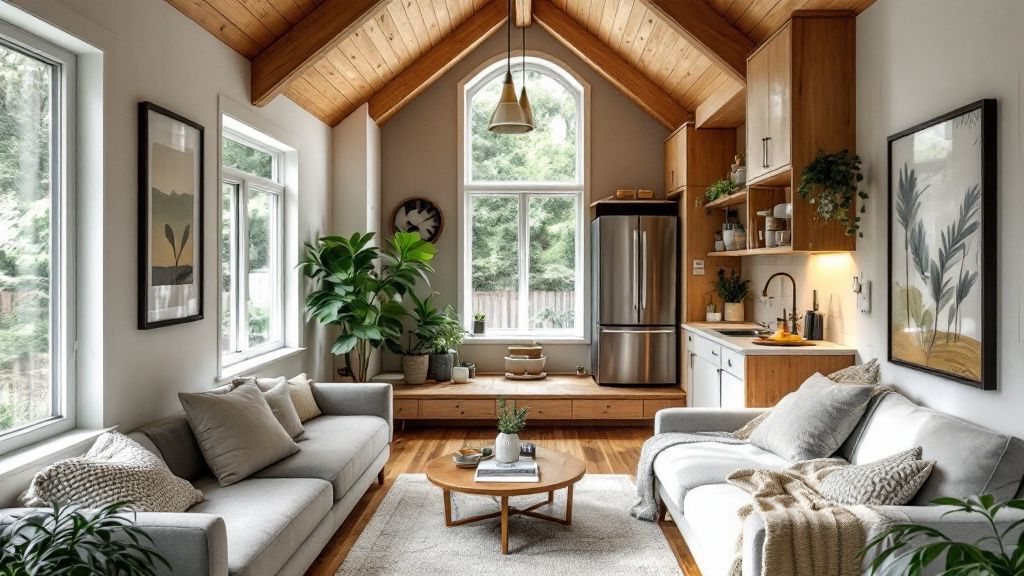1. Utilize Light to Your Advantage
Natural Light: The ambiance of a room can be significantly transformed with natural light. Opt for sheer curtains or blinds in lighter hues to allow maximum sunlight. If renovations are an option, consider larger or additional windows, and don't underestimate the power of a clean window to brighten a space.
Artificial Light: A well-lit room feels more spacious, so diversify your lighting. Rather than a single central source, introduce layered lighting. Use ambient lights for general illumination, task lights for focused areas like reading nooks, and accent lights to highlight decor. Also, consider the color temperature: cooler light temperatures can make a room feel more open, but a balance between warm and cool is ideal for living areas. Dimmer switches can be instrumental, allowing flexibility in ambiance depending on the time of day.
Mirrors and Reflective Surfaces: Mirrors can be magical for small spaces. Placing them opposite light sources amplifies both light and perceived space. Beyond large wall mirrors, think of mirrored furniture or decor pieces. Even the style and shape of mirrors, be it circular or a collection of smaller mirrors, can serve as both a decorative and space-enhancing element.
2. Furniture: Less is More
Size and Scale: Furniture acts as the backbone of any living room's aesthetic. While it's tempting to go for grand, lavish pieces, in a smaller living room, the size and scale of your furniture can make all the difference. Opting for pieces proportionate to your room ensures that they don’t dominate the space. Sleek designs with exposed legs can provide a lighter visual footprint, and by showing a bit more floor, the room feels larger and more open.
Multi-functional Pieces: The rise in minimalist living and urban apartment sizes has given birth to innovative furniture designs that serve multiple purposes. Sofa beds can transform a sitting area into a guest room in minutes. Nesting tables allow flexibility – they can be spread out when needed or tucked together to save space. Storage ottomans, where you can tuck away blankets or magazines, serve as both seating and storage. Such furniture is invaluable in a tiny living room, ensuring you maximize utility without cluttering the area.
Floating Units: The concept of 'floating' isn't just for modern design aesthetics; it's a strategic choice for small spaces. When furniture, such as TV units or shelves, is elevated off the floor, it creates an illusion of more floor space, making the room appear less crowded. Moreover, wall-mounted units allow for easier cleaning and can be positioned at varying heights, allowing for visual layering and better utilization of vertical space.

3. Go Vertical
Often in interior design, horizontal spaces like floors and tables get the bulk of our attention, but the vertical spaces offer untapped potential, especially in smaller living rooms.
Tall Storage Solutions: Traditional wide bookcases or cabinets tend to eat up floor space. By switching to taller, slimmer storage units, you not only free up valuable floor space but also draw the eyes upward. This vertical movement makes ceilings appear higher and the room more spacious. Think tall bookshelves, ladders with hanging storage, or even vertical wall-mounted racks.
Vertical Décor: The way you decorate can also leverage vertical space. Hanging artwork or decor elements at varying heights or using vertical patterns on wallpapers can elongate the room. For instance, a vertically oriented painting or a series of shelves arranged in an ascending pattern can accentuate height. Tall indoor plants, like fiddle leaf fig trees or snake plants, can fill corners while adding a touch of nature and height.
Ceiling Treatments: The ceiling, often termed the fifth wall in design, can be harnessed to give a sense of vertical depth. Consider using ceiling-hung elements, such as pendant lights or hanging planters, which draw the eye upward. Subtle patterns or colors on the ceiling can also create depth without overwhelming the space.
4. Opt for Light and Neutral Color Palettes
Color has a profound impact on our perception of space. While dark colors can create a cozy, intimate ambiance, they can also make a room feel confined. Light and neutral colors, on the other hand, can work wonders for expanding a space visually.
Basics of Neutrals: Neutral doesn’t mean bland. From soft whites to beiges, grays, and taupes, neutrals come in a range of shades. By using these as the foundational colors for walls, furniture, and large decor pieces, you form a cohesive backdrop that blurs boundaries, making the room seem larger.
Mixing and Layering: While sticking to a neutral base, introducing varying shades of the same color can add depth. Consider light beige walls with slightly darker beige sofas or rugs. This subtle contrast maintains the spacious feel while preventing the decor from feeling monotonous.
Accents and Pops of Color: Just because you're using a neutral palette doesn’t mean you should shy away from color altogether. Bright, well-placed accents can elevate the design. Think vibrant throw pillows, colorful vases, or bold artwork. The key is moderation, ensuring these colors complement rather than dominate the space.
Reflection and Texture: Light colors, especially in glossy finishes, reflect light better, further enhancing the sense of space. Pairing this with different textures, like a soft rug or a woven throw, adds visual interest without compromising on the spacious feel.

5. Reduce Clutter with Smart Storage Solutions
An orderly space naturally feels more expansive. When every item has its designated place, rooms appear more streamlined and open. For small living rooms, integrating intelligent storage solutions is vital not only for aesthetics but for functionality.
Built-ins and Custom Solutions: Custom-built storage can maximize the utility of every inch of your room. Whether it's a built-in bookcase that runs wall-to-wall or a bench with hidden storage beneath the seat, these solutions can be tailored to fit your room's dimensions and your specific needs.
Furniture with Storage: The market today offers a plethora of furniture pieces that double as storage. Think sofas with drawers underneath, coffee tables with storage compartments, or ottomans that open up to reveal storage space inside. These multipurpose pieces allow you to keep everyday items out of sight, ensuring a cleaner look.
Vertical Storage: As highlighted earlier, don't neglect the vertical space. Floating shelves, wall-mounted cabinets, or even hanging organizers can utilize this often-overlooked dimension, allowing you to declutter the floor and horizontal surfaces.
Hidden Spots: Some spaces in your living room may seem unusable but can be turned into storage with a little creativity. The space behind a door can host hooks or hanging pockets. Corners, often underutilized, can house corner shelves or tall storage units.
Declutter Regularly: While smart storage solutions play a crucial role, the importance of regular decluttering can't be overstated. Periodically review the items in your living room, removing or relocating those that don't belong or are no longer needed.
Conclusion
To sum it up, if you want to make your small living room feel bigger, you don't need more space; you need smarter choices. These five tips can help. Get furniture that can do double duty and hold your stuff. Use light colors to make the room look open and cheerful. Play with lighting and mirrors to create a sense of space. Keep the decor simple and clutter-free. And don't forget to use your walls for storage. These tricks work whether you live in a tiny apartment, a studio, or a small house. Your little living room can feel comfy and look roomier with these ideas.






Share: